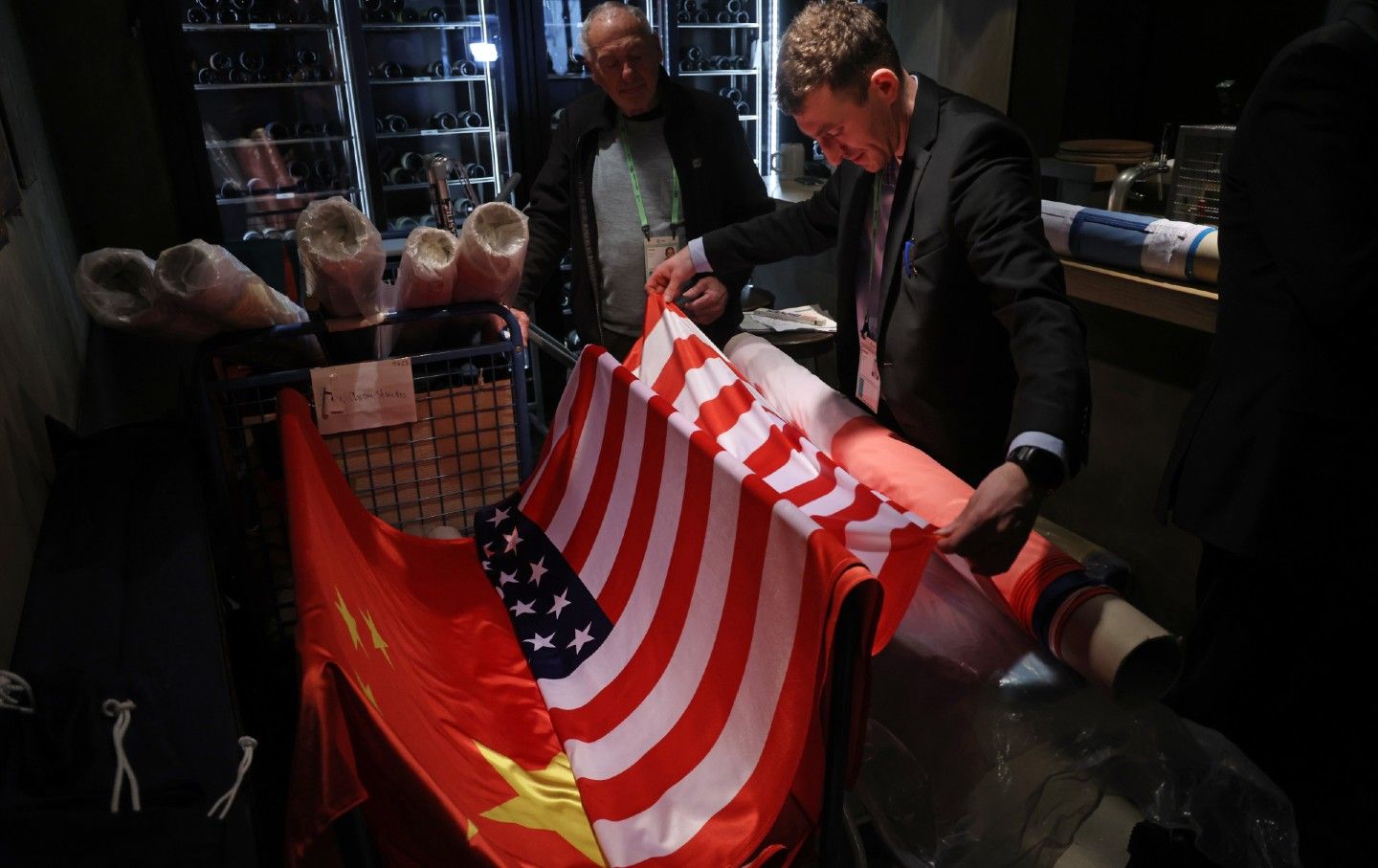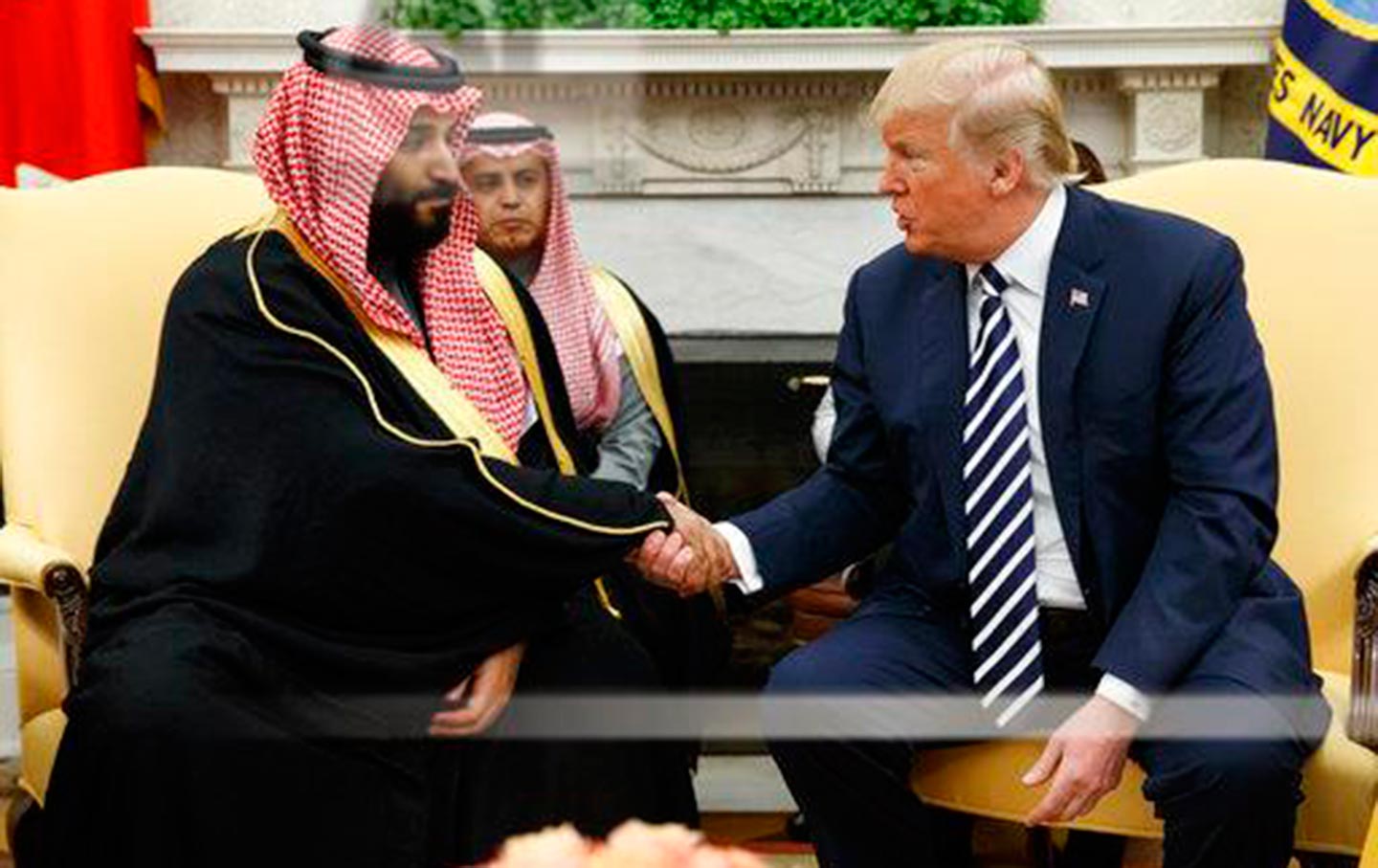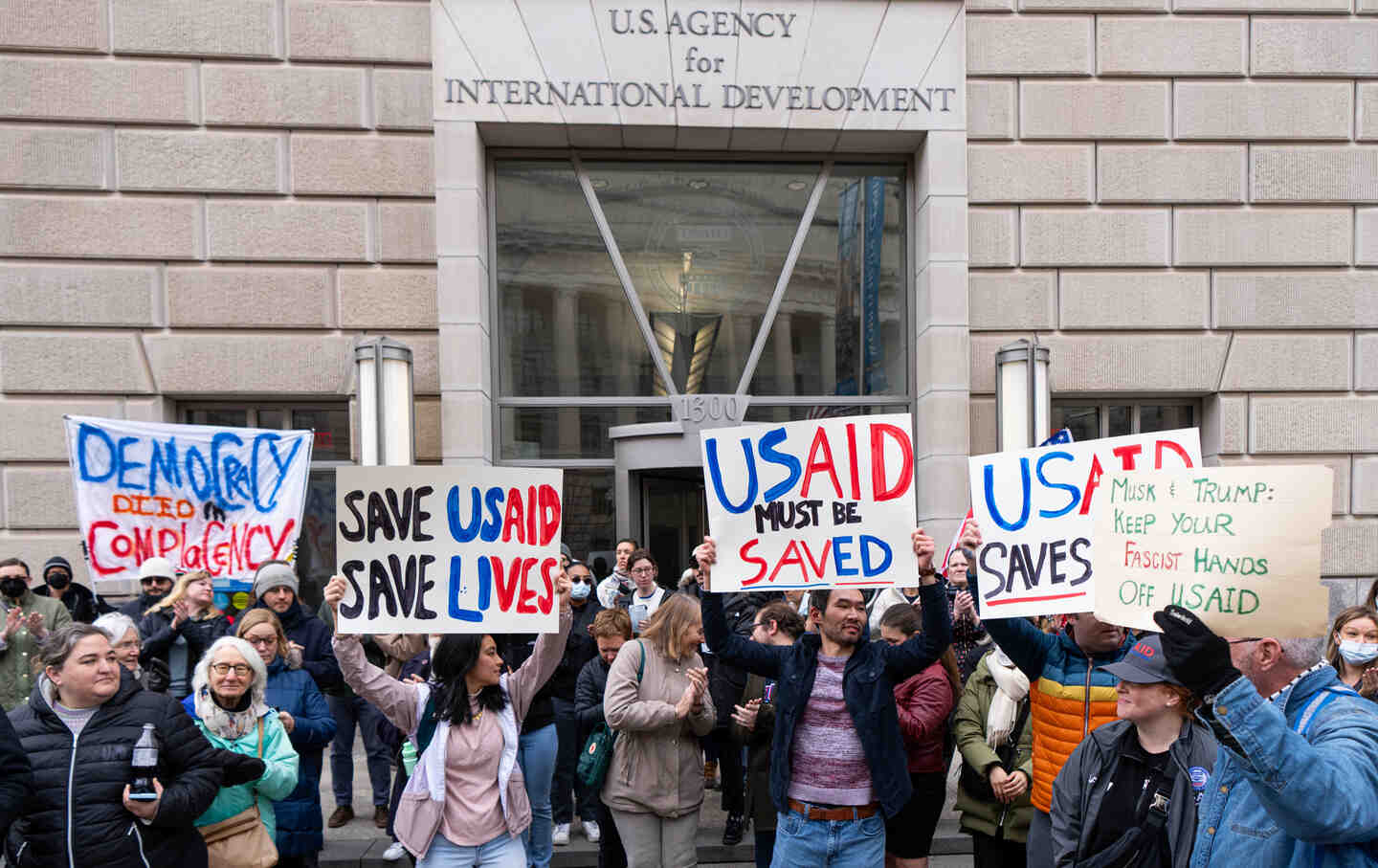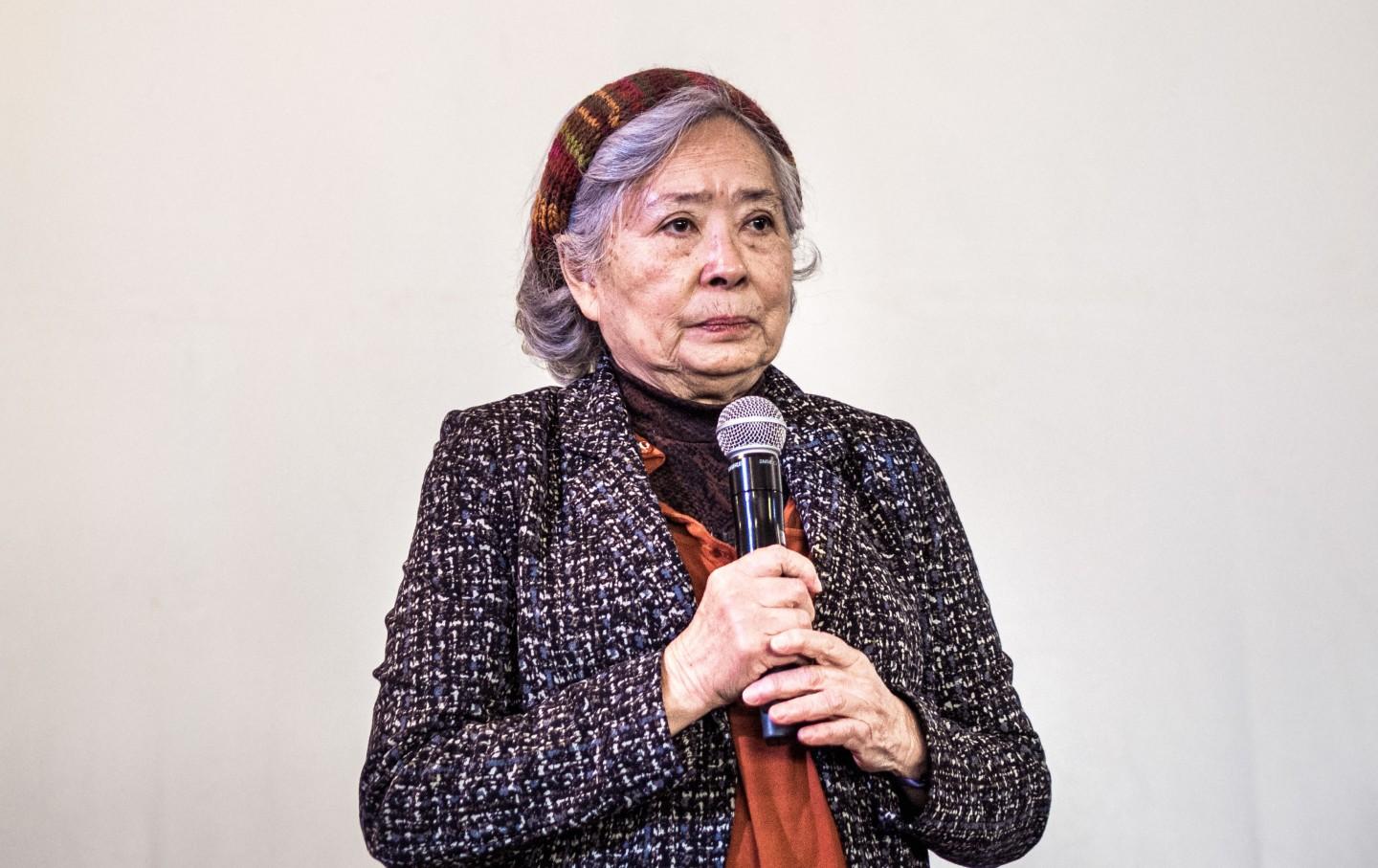Could the US and China Conclude an Agreement Halting the Momentum Toward Conflict?
How Trump’s attack on the global order endangers a deal Beijing might otherwise accept.

An unexpected bright spot in the months following Trump’s election victory was his repeated support for some kind of agreement with China. Under Biden, the two most powerful countries in the world had seemed headed for certain conflict, and Trump’s campaign bluster promised even worse tensions. But now Trump was claiming that the two countries “can, together, solve all of the problems of the world,” and China was discreetly sending out feelers about what it could offer to bring off such a deal.
Then suddenly, the whole tenor of the relationship abruptly changed. On March 4, China’s Foreign Ministry said: “If the US is determined to fight a tariff war, a trade war—or any other kind of war—China will meet the attack and fight to the finish.” Two days later, the ministry doubled down on the theme, promising that, “no matter if it’s a cold war or a hot war,” the US will not win.
The events of March 4 lay bare the reasons that Trump is, at one and the same time, tantalizingly close to his proclaimed goal of world peace and alarmingly close to sending the relationship with China spiraling into conflict. Trump’s antipathy toward the global order, now inspiring an unprecedented attack on the post-Cold War institutions that once sustained American power, is both the reason he can offer such a deal and a source of deep disquiet in Beijing. Deciphering this tension is the key to understanding not just Trump’s China policy but his whole foreign policy agenda.
What led to the sudden shift in Chinese rhetoric? Earlier on March 4, alongside 25 percent tariffs on Mexico and Canada that were soon suspended, Trump unceremoniously imposed on China his second across-the-board 10 percent tariff increase in as many months. Like the first one, he justified this one with an absolutist demand—difficult both practically and politically—that China immediately suppress the production of all fentanyl precursor chemicals. Just weeks into his second term, Trump has already quietly levied larger tariffs on China than across the entire world-shaking trade war of his first term—and those first-term tariffs are still in place.
Also on March 4, Hong Kong firm C K Hutchison announced that it would sell its overseas ports business—including its two (of five total) Panama Canal ports—to US asset firm BlackRock. While both companies insisted that the sale was a normal commercial transaction, the context of Trump’s repeated condemnation of a “Chinese” presence in the canal was lost on no one. China is now considering how it might prevent the sale from going forward.
In his address to Congress that same night, Trump bragged about the ports sale but otherwise barely raised the issue of China. His repeated threats against the territorial integrity of various allies, though, must have raised questions within the sovereignty-obsessed Chinese leadership.
Despite these misgivings, Beijing has continued to express its interest in negotiations. After all, Trump’s mercantile sensibility and his disdain for the sacred cows of American geopolitical primacy allow him to take seriously Chinese interests and consider a settlement that could work for both powers. This marks a sharp contrast with Biden’s foreign policy team, who imagined they could avoid conflict with China by conducting rudimentary diplomatic routines even as they steadily exacerbated the pressures toward conflict. The core Biden strategy was to build up US alliances around the principle of excluding China while offering concessions to countries in the Global South if they joined such an exclusionary regime. Convinced of their own righteousness, the administration had difficulty recognizing how such an approach looked from Beijing.
Trump, in contrast, recognizes a kindred spirit in Xi Jinping, who shares his own priorities of commercial success and authoritarian control. Unlike Biden’s foreign policy team, Trump does not seek strategic advantage over every space of geopolitical power in the world, so he is less likely to exacerbate Beijing’s fears of encirclement or its anxiety that Taiwan could be permanently separated.
Moreover, Trump conceptualizes the economy as a market, where those with bargaining power squeeze profit out of those who lack it, rather than a supply chain, in which power accumulates at strategic nodes associated with scarce goods or technologies. This, too, makes agreement with Beijing more likely, since Trump places less priority than Biden on strangling China’s access to technology or demanding deep changes to China’s political economy.
All of this substantiates the hope that the US and China could conclude an agreement capable of breaking the momentum toward conflict. More than Trump’s hunger to see himself as a dealmaker, his whole mode of reasoning establishes the conditions for mutual accommodation between the two powers.
Yet both the style and substance of Trump’s leadership also pose a significant threat to that potential. Despite a more pliable set of officials staffing his second than his first administration, the trademark chaos of the first term is just as evident today. That is profoundly unnerving to Beijing, characteristically stuck on protocol and obsessed with stability. Illustrative of the diplomatic pitfalls of such disorganization is that, even after two rounds of punishing tariffs, the administration still can’t explain what it actually wants from China. The shift in Chinese rhetoric in part registers exasperation.
However, the most dangerous part of Trump’s foreign policy is not the erratic diplomacy but what seems to be the unifying line running through all the vacillations. Whether threatening to annex neighbors, smashing up the world humanitarian system, shredding the rules of global trade, or actively supporting the nativist opposition across a number of allies, the common thread of all the administration’s early foreign policy moves is open hostility to what remains of the institutions and ideology of neoliberal globalization.
Popular
“swipe left below to view more authors”Swipe →For four decades, this so-called liberal international order secured America’s position as global hegemon by convincing elites in other countries that they too could gain from free market reform, corporate power, political liberalization, and US suzerainty. But in part because the system failed an increasingly large number of Americans and in part because it constrained the naked exercise of force, the Trump administration now aims to eradicate it.
Chinese leaders may be perfectly happy to see hypocritical American paeans to democracy and the rule of law despoiled. The danger is that those same leaders are deeply invested in other core institutions of the system—those parts that secure stability for commerce, promote economic development, and legitimize governing elites.
Contrary to the portrayal that dominates DC thinking, in which China is thought to be bent on destroying the rules-based international order so that it can bully weaker countries for gain, China is in fact a cautious and conservative status quo power. It is hostile to those parts of the global system that undermine the political regime’s claims or that represent the unilateral use of force, but the rules of world trade, the prerogatives of state sovereignty, the smooth operation of multilateral institutions to address transnational problems, and the right to development for every country are all basic commitments in state policy. The official line that Chinese foreign policy seeks “win-win cooperation” is based on the (often unreliable) assumption that all these principles are mutually beneficial.
Polemical depictions of China come much closer to describing the aims of Trump’s foreign policy than Xi Jinping’s. Ironically, the Trump administration might accept the DC portrayal of Chinese goals as accurate but unobjectionable—surely all great powers would squeeze their neighbors if the artificial constraints of global order were removed. They may believe that they can make Beijing an attractive offer: no longer trying to cut China out of the system and instead simply destroying the system, after which the great powers will be free to work out among themselves how to divide the spoils. If the United States builds an exclusionary sphere of interest in the Western Hemisphere, China could make peace with that because it could prey on countries in its own sphere to make up for lost tribute.
We do not know whether anyone in the administration has gone this far in working out the consequences of their current path. But the logic of US actions is great-power predation pushing in the direction of closed imperial blocs. Such an outcome is a nonstarter with China—not just because Beijing would not trust the US to leave it enough space for its own depredations, but because it considers parts of the liberal international order crucial to its own success.








